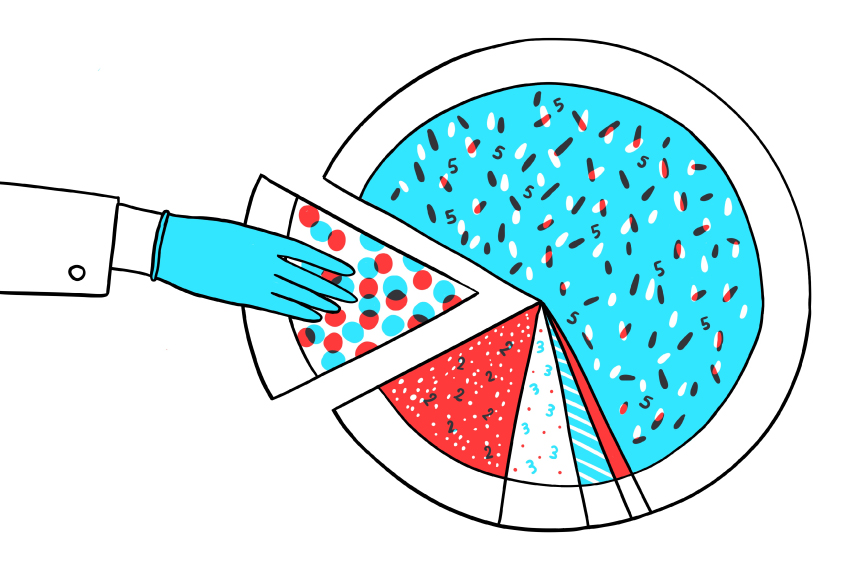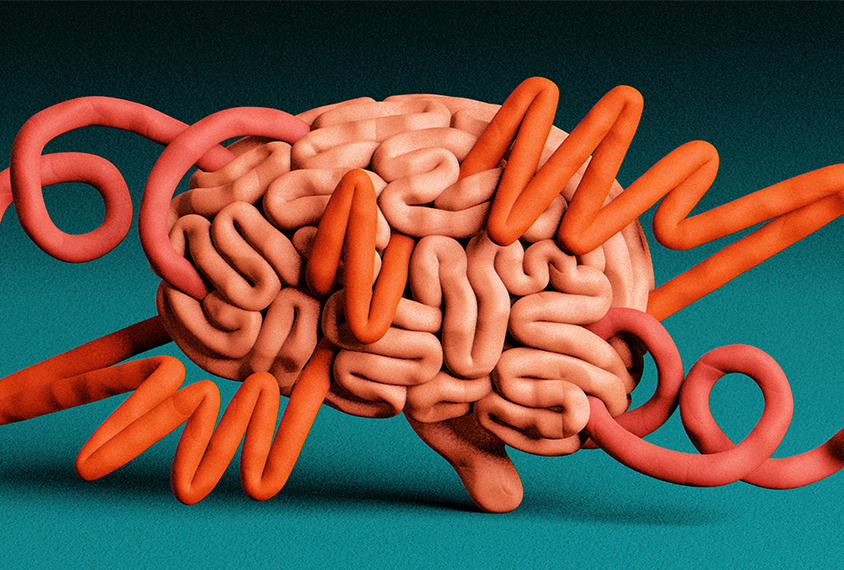Jonathan Moens is a former intern at Spectrum and a graduate student at New York University’s Science, Health and Environmental Reporting Program. He studied philosophy and neuroscience as an undergraduate student at University College London in the United Kingdom. He received an M.Sc. in brain and mind sciences at University College London and École Normale Supérieure in Paris, France, specializing in cognitive neuroscience. He previously worked as a research assistant at the Neurospin laboratory in Paris and the Center for the Neuroscience of the Senses in London.
Jonathan Moens
From this contributor
Autism comorbidities reflect racial, ethnic disparities
Autistic people from historically marginalized races and ethnicities are more likely than their white peers to be diagnosed with accompanying health conditions.

Autism comorbidities reflect racial, ethnic disparities
By the Numbers: Autism in translation, rising prevalence figures, intelligence quotients
In this edition of By the Numbers, we discuss how translation alters a screening tool’s accuracy, the closing racial gap in autism prevalence numbers, and the preponderance of autism without intellectual disability.

By the Numbers: Autism in translation, rising prevalence figures, intelligence quotients
Autism without intellectual impairments more common than previously reported
Almost 60 percent of autistic people may have an average or above-average intelligence quotient, according to a new longitudinal study.

Autism without intellectual impairments more common than previously reported
Rethinking autism assessments in the time of COVID-19: Q&A with Bishop, Zwaigenbaum
Moving most clinical assessments online during the coronavirus pandemic has created a digital divide while closing some geographical ones, say Somer Bishop and Lonnie Zwaigenbaum.

Rethinking autism assessments in the time of COVID-19: Q&A with Bishop, Zwaigenbaum
Disruptions to brain’s ‘thermostat’ may underpin autism traits
Mounting evidence suggests that autism often involves upsets in homeostatic plasticity, a set of processes neurons use to stabilize their activity. These disruptions result from a range of autism-linked mutations and may help to explain the condition’s famed heterogeneity.

Disruptions to brain’s ‘thermostat’ may underpin autism traits
Explore more from The Transmitter
Dendrites help neuroscientists see the forest for the trees
Dendritic arbors provide just the right scale to study how individual neurons reciprocally interact with their broader circuitry—and are our best bet to bridge cellular and systems neuroscience.

Dendrites help neuroscientists see the forest for the trees
Dendritic arbors provide just the right scale to study how individual neurons reciprocally interact with their broader circuitry—and are our best bet to bridge cellular and systems neuroscience.
Two primate centers drop ‘primate’ from their name
The Washington and Tulane National Biomedical Research Centers—formerly called National Primate Research Centers—say they made the change to better reflect the breadth of research performed at the centers.

Two primate centers drop ‘primate’ from their name
The Washington and Tulane National Biomedical Research Centers—formerly called National Primate Research Centers—say they made the change to better reflect the breadth of research performed at the centers.
Post-infection immune conflict alters fetal development in some male mice
The immune conflict between dam and fetus could help explain sex differences in neurodevelopmental conditions.

Post-infection immune conflict alters fetal development in some male mice
The immune conflict between dam and fetus could help explain sex differences in neurodevelopmental conditions.